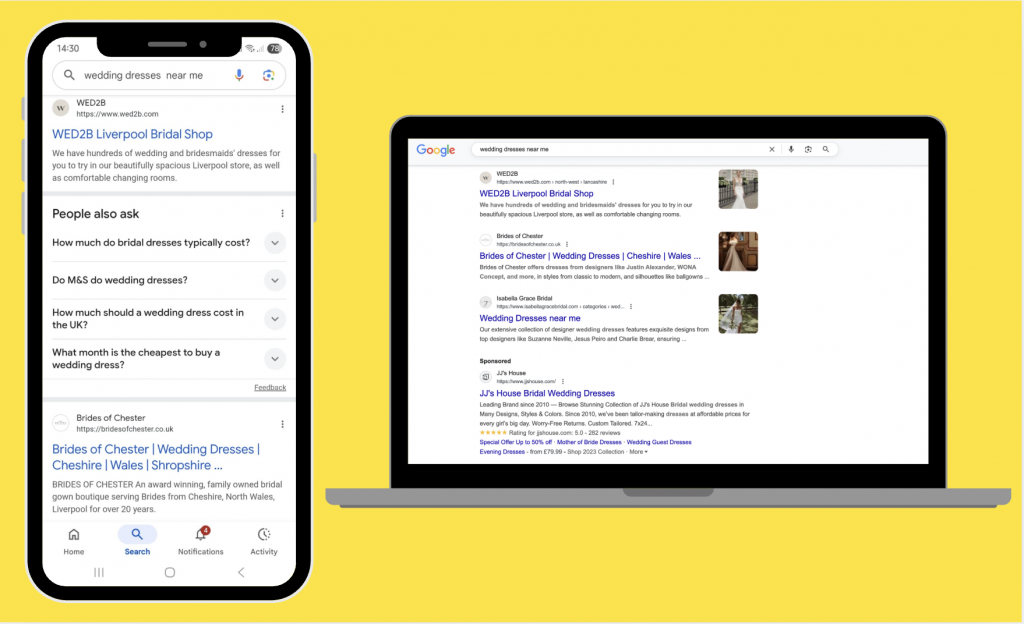When it comes to SEO, one of the biggest questions people ask is “does word count really matter for SEO?” Some swear by long blogs, while others say it is all about short snappy content. But the truth is, word count is only one part of the SEO puzzle. Google and other search engines look at a whole bunch of factors such as; quality, relevance and engagement.
While you might be tempted to stress over every single word, you will get much further if you think about the bigger picture. So, let’s chat about; word count for SEO, how it affects things like your website metadata, titles as well as blog posts and when to focus more on quality than numbers.

Get your free digital marketing quote
Take the first step towards digital success and let’s start driving results.
Website Metadata: Length and Impact

For years people believed that the longer the blog, the better it ranked. In some cases, this is true. Longer content often covers a topic in more depth, which helps search engines understand that your page is valuable. Plus, it can naturally include more keywords and answer more questions.
But here is the catch. Longer content only works when it is genuinely useful. If your audience just wants a quick answer, they do not want to wade through 2000 words of fluff. Matching content length with user intent is the secret here. Sometimes that means a 200 word page, sometimes it means a 2000 word guide.
Ideal Word Count for Meta Titles
The meta title of a web page is the little clickable headline that shows up in search results. These are measured in characters, not words and the little sweet spot is normally between 50 and 60 characters. Always try to keep the meta title short, clear and packed with the right keywords without sounding robotic – cough cough ChatGPT.
A good example would be:
- “Affordable SEO Services | Bold Online Marketing”
- “How to Boost Your Website Rankings | Bold Online Marketing”
Always followed by the trusty pipe [|] and the name of the website. Anything longer runs the risk of being cut off and that is never a good look, we want the first user interaction to be aesthetically pleasing of course!
Best Practices for Meta Description Length
Now for the meta descriptions that are those little snippets under the title in Google. While they do not directly affect rankings, they do affect whether people click through to your site. The general rule is to keep them between 145 and 155 characters.
The key with them is to be clear, use your keywords naturally and give people a reason to click. Something like:
- “Discover expert SEO tips that help your business grow online. Read our full guide today”
Works well. But remember, mobile devices can cut these off even sooner, so always put the most important info at the start.
Character Limits vs Word Count in URLs

When it comes to the URLs, they might not seem like a big deal but they do make a real difference to both SEO and user experience. Using short, keyword focused URLs are easier to read and remember. Compare these two:
- www.example.com/blog/seo-word-count-tips
- www.example.com/blog/12345-seo-long-article-word-count-question
The first one is much cleaner and search engines love that. Keep it simple, avoid stuffing in too many words and stick to keywords that really matter. And while on the topic of avoiding things, make sure to use hyphens between words, as the spaces will leave an eye-sore “%20” between each word as a fill in.
Recommended Content Length for Blog Posts and Pages
This is where the big debate usually happens. Research often shows that longer blogs (around 1500 words or more) perform well in search rankings. They give you space to cover topics in detail, use subheadings and keep people on the page for longer.
That being said, long content is not always the answer. Sometimes a short and sharp page can perform brilliantly if it nails the search intent to a T. Take a service pages for example, they usually do better when they are clear and to the point, while blogs and guides give you more freedom to expand.
Think of it this way. Instead of chasing a word count target, chase value. If your content answers the question better than anyone else, Google will notice.
Mobile vs Desktop: Does Word Count Matter Differently?

When people are browsing on mobile, space is very limited. Titles and descriptions get cut off sooner and users often have shorter attention spans (sorry not sorry to the users). But this does not mean your content should be short, it just means it should be scannable.
By breaking up text with subheadings, bullet points and visuals, will ensure mobile readers can find what they need quickly. While on desktop, people are often more willing to stick around for longer reads, especially if the layout is easy on the eye.
The best way to get this right is to always test your content not only mobile but desktop too, seeing how it looks and see how people interact with it.
Word Count and User Engagement Metrics
Google is not just counting your words, it is also looking at how users react to them. User engagement signals; time spent on page, bounce rate and click through rates which tells search engines whether your content is doing its job.
Long content can keep people engaged if it is well written and easy to read. But if it is full of filler and fluff, people will just click away faster than you can say “SEO”.
Formatting matters just as much as length so be sure to use; short paragraphs, headings, images and lists to make your content more inviting.
When to Prioritise Quality Over Word Count
Now here is the big one! Quality always beats quantity (word count). Google is wanting to give users the best answers to its users, not the longest ones. If a 300 word blog answers the question perfectly, that is more valuable than a rambling 2000+ word post.
The golden rule is to match the depth of your content to the search intent. Sometimes a deep dive is needed, sometimes a quick answer is enough. Focus on creating content that is relevant, clear as well as valuable and you will be on the right track.
So all in all, does word count for SEO matter? Yes and no. It matters when you are thinking about metadata character limits, blog depth and user engagement, but it is never the only factor. Quality, intent and clarity always come first.
Instead of obsessing over hitting a number, focus on writing content that your audience will actually find helpful. If you do that, the SEO results will follow.
And if you would like some expert help shaping your SEO strategy and creating content that performs, our team at Bold Online Marketing would love to chat. Get in touch with us today and let’s see how we can help your business grow online.



